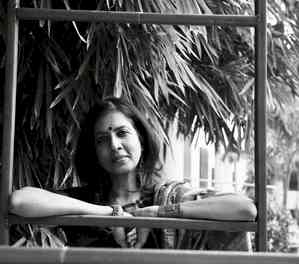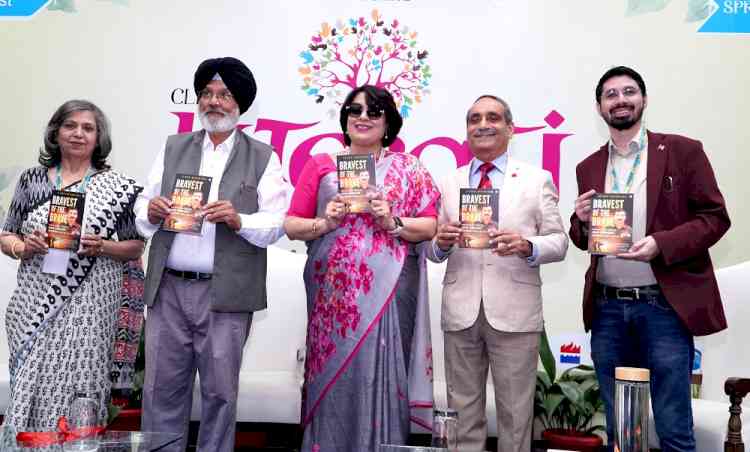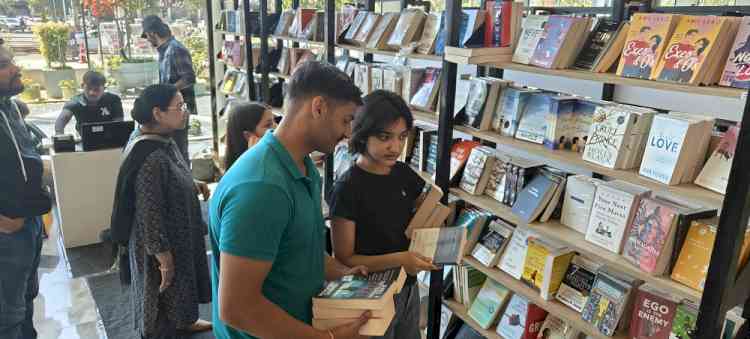Poetry is not about full stops but commas: Arundhathi Subramaniam
She says that there is a time in everyone's life, probably in teens when most people are first drawn to poetry—they adore the sound of it and the music it holds—the rhyme that it offers.

Chandigarh, November 10 (IANS) She says that there is a time in everyone's life, probably in teens when most people are first drawn to poetry—they adore the sound of it and the music it holds—the rhyme that it offers.
It is only later that they begin to think of it as a means of self-expression. Much later does one realise that it is a kind of movement, a non-resistance movement against any kind of "ready-made" language.
“When I say ready-made language, I mean what we take as gospel truth. For some people, it is the gospel, based on whatever their religious abbreviations are,” this Sahitya Akademi-winning poet tells IANS.
Poet Arundhathi Subramaniam, who was in Chandigarh and also attended the recently held Kasauli Literary Festival, insists that the best poems for her, even the deeply political poems, are those that shift the way we look at an existing truth and offer a map for lost ones.
“Poetry can be deeply political but that does not mean one has to shout. It does not have to be strident, nor does it mean ironing out life into a state of aesthetic anaemia. You know life is unruly, messy, vibrant, complex, and if you're able to distil a moment in that vibrancy, in that seeming chaos, if you're able to come out with a moment that feels true, that feels deeply aligned real, you have succeeded,” she observes.
Stressing that a poem is always a provisional utterance, considering all language is provisional, Subramaniam feels that one is creating a very fragile architecture of meaning, which will hold and then dissolve again. “So I say in the introduction of ‘Wild Women’ that it is not about some frozen identities that, it is not a mask that becomes your face but an identity you wear and discard as freely and ecstatically as you choose,” she states.
Adding that we need a spirit of play much more, and that was something we knew as children when we were drawn to poetry, she points out, “So, this need for full stops comes later. I think in a very, very fast-changing world, the need for full stops becomes even more urgent for people, which is why we see the kinds of religious and political fundamentalism that we see. But if we allow that quest for certainty to be replaced by a quest for clarity, I think we would be on to something deeper, truer, which is more ourselves.”
Considering she has also translated and commissioned translations of poetry, has it helped her as a poet? “Frankly, I do not see myself as a translator as much as I see myself as an editor and a curator. And in the latter role, I am constantly thinking about how to frame experience in a certain way. Translation is an incidental by-product of that curatorial impulse of the moment. But yes, I see myself commissioning lots of translations to create the kind of mosaic that I want.”
While reading ‘Wild Women’, one wonders if spirituality has something to do with gender.
“Growing up, I was always very impatient with what I saw as religious poetry. It was all about syrupy devotion to God and sitting around looking pious. This did not appeal to me. I was also uncomfortable with the fact that a lot of our sacred poetry seems to have women in the position of pining, waiting for this god who is always unattainable, absent, unpunctual and unfaithful. That whole thing, I just found it tiresome and I never paid much attention to it. Later, when my journey took on a certain intensity, I was stunned by A. K. Ramanujan’stranslation of 'Hymns for Drowning’ by Nammalvar. There was so much going on here that was fierce, feral, erotic, and suddenly it spoke to me much more deeply than it ever had,” she offers.
While she was working on ‘Wild Women’ for six years, she wrote a book of essays ‘Women Who Wear Only Themselves’ in between. Now Subramaniam is writing a book of poetry titled ‘The Gallery of Upside-Down Women’. She says, “I wanted to turn upside-down our ideas of the sacred, our ideas of what it means to be human, and it's also a tribute to some of the utterly remarkable women,” she concludes.
--IANS
sukant/kvd


 IANS
IANS 







